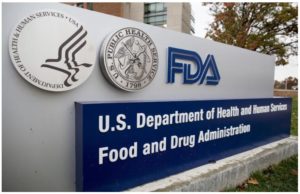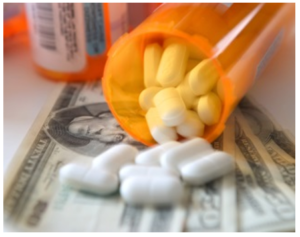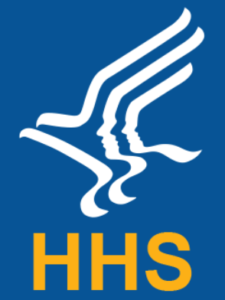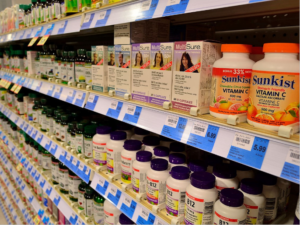- Novartis CEO calls for new drug payment model ahead of Zolgensma launch (fiercepharma.com)Novartis CEO plans gene therapy price 'far lower' than $4 million to $5 million range (reuters.com)
Novartis is looking to launch spinal muscular atrophy gene therapy Zolgensma this year. But the possibility of a price tag as high as $5 million has already sparked controversy. To prepare for the pricey rollout, CEO Vas Narasimhan is now calling for changes to the U.S. drug payment system...For chronic diseases, current healthcare systems are made in a “pay-as-you-go model,” but not for single-treatment therapies that could potentially cure them. And that makes new models for evaluating the benefits of such treatments and for payment necessary...“[W]e need new economic models to determine exactly how much value [a cure] represents” when compared with the cost and suffering saved from longtime chronic care...READ MORE
- China slashes tax to stimulate domestic orphan drug market (pharmaceutical-technology.com)
China has announced a plan to slash the Value Added Tax on 21 rare disease therapies and four active pharmaceutical ingredients, dropping it by 80% in a bid to stimulate the domestic rare disease therapy market and drop the prices of the therapies...China is currently suffering from a shortage of rare disease therapies; of the 44 globally available rare disease therapies, only 19 are currently marketed within China, and of these 19, all are priced out of reach for the average Chinese patient. And with an estimated population of nearly 20 million people suffering from a rare disease within China, this is a huge area of unmet need...
- FDA issues statement on new policy for pricing of generic drugs (chaindrugreview.com)
...In too many cases, branded drugs that are no longer protected by patents or other exclusivities do not face expected competition. In fact, there are several hundred of such branded drugs that do not have any generic competition. Instances like these may keep prices high and ultimately hurt American patients...We’ve been taking new policy steps at the FDA to support downward pressure on drug prices by helping to clear a path for more efficient generic development...We’re working to reduce barriers to generic development and to lower the cost of generic entry so that more of the generic medicines that the FDA approves are launched and reach patients...
- issue draft guidance with recommendations on establishing active ingredient sameness.
- development of new analytical tools and in vitro tests to provide additional accurate, sensitive and reproducible tools to support approval of complex generic drugs.
- laying out new, efficient guidelines for the use of a novel pathway that provides incentives for developing generic versions of drugs that currently face little or no competition - Competitive Generic Therapies
- How to trump the Trump administration? For J&J, it’s putting list prices in ads before it’s forced to (fiercepharma.com)
Johnson & Johnson will put list prices in its drug TV ads. It’s the first pharma to announce that plan, self-regulating ahead of a proposed Trump administration rule that would force all pharma companies to add list prices to TV commercials...J&J pharma arm Janssen will begin with its most prescribed drug, the oral anticoagulant Xarelto, adding both list price and potential out-of-pocket costs to its TV spots later this quarter. It will add prices to its other medicines, too, J&J said in a statement. It’s planning to weigh patient and consumer feedback on the Xarelto changes as it rolls out the follow-ups...J&J’s move combines the Health & Human Services list price mandate with the pricing principle plan that members of the trade association PhRMA agreed upon earlier this year. That plan would offer consumers a broader explanation of costs by linking ads to online or telephone explanations of expected out-of-pocket expenses and insurance coverage.
- Not So Fast on Ending Rebates for Prescription Drugs (realclearhealth.com)
Give President Trump credit for acting on his promise to bring down prices for prescription drugs. But one policy idea his administration has proposed needs a second look...The Department of Health and Human Services has proposed a rule that would end rebates that drug companies pay to Part D and Medicaid-managed organizations for the prescription drug equivalent of preferential shelf placement and instead require savings from any such rebates be passed along to consumers... if this regulation goes final...it may even mean lower prices for some drugs in some cases...But Big Pharma...will realize a windfall of up $100 billion per year...what Part D participants pay in premiums and taxpayers shell out for Medicare and Medicaid – would go up...READ MORE
- HHS’s Multi-Pronged Approach To Lower Drug Prices: Will It Work? (forbes.com)
...the Department of Health and Human Services has put forward a series of initiatives aimed at lowering prescription drug prices, Medicare expenditures, and patient cost-sharing. The proposals run the gamut from increasing transparency of net pricing, to allowing the use of certain formulary management tools previously off limits to Medicare plans, to direct price controls...But, will they work? The federal government appears to think so. Several weeks ago, Secretary of HHS Alex Azar stated that "the models being announced create new incentives for plans, patients, and providers to choose drugs with lower list prices...[advancing] our priority of using HHS programs to build a value-driven healthcare system."...it's debatable whether HHS will achieve the twin objectives of lower drug spending and decreased patient cost-sharing as a consequence of implementing its series of initiatives. Some may not get implemented as planned, or not at all given the opposition they evoke. Others may result in tempering the growth in drug costs overall, but raising the amount patients must spend out-of-pocket, whether on premiums or patient cost-sharing...
- CMS unveils CAR-T proposal, with emphasis on patient outcomes (biopharmadive.com)
Under a proposal...Medicare would cover CAR-T cell therapies through a Centers for Medicare and Medicaid Services pathway known as Coverage with Evidence Development...The proposal holds a mix of provisions, including that patients must be monitored for at least two years post-treatment. Hospitals administering CAR-T therapy, whether through inpatient or outpatient care, must participate in a CMS-approved registry that collects data on patient outcomes and characteristics and then compares that data to what's been seen in pivotal clinical trials of the therapy or standard of care treatment...Hospitals and clinicians would track certain clinical data elements at baseline, at treatment, and then at three-month, six-month, one-year and two-year follow ups following administration...
- China to add fentanyl-related substances to controlled narcotics list (reuters.com)
China will add fentanyl-related substances to a supplementary list of controlled narcotic drugs from May 1, the government said...The statement was jointly issued by the Ministry of Public Security, the National Health commission and National Medical Products Administration...U.S. Trade Representative Lighthizer said in March he would prefer to include China’s commitments to curb fentanyl in any trade agreement...READ MORE
- Legalize Pot? Amid Opioid Crisis, Some New Hampshire Leaders Say No Way (nytimes.com)
But in New Hampshire, Gov. Chris Sununu and some other state leaders are opposed. The problem, they say, is not just about pot. It’s about opioids — drugs that have ripped across this state, devastating thousands of residents and leaving New Hampshire in recent years with one of the highest per capita death rates from opioid-related overdoses. After so many deaths, so much misery and so much state money spent fighting opioids, the opponents say, how could anyone even think about easing access to some other drug?...Mr. Sununu called the debate over marijuana legalization “the next major battle” in the state’s response to the opioid crisis. He urged the commission, which includes medical and drug treatment experts, as well as the heads of various state departments, to take an official position opposing the legislation, which it did at its meeting last month...
- FDA clamps down on illegal dietary supplements (pharmaceutical-technology.com)
The Food and Drug Administration has announced new measures to strengthen its regulation and oversight of dietary supplements, which have not been reviewed by the regulator...FDA Commissioner Scott Gottlieb said: “It’s clear that the US Food and Drug Administration plays an important role in helping consumers make use of safe, high-quality dietary supplements while also protecting Americans from the potential dangers of products that don’t meet the agency’s standards for marketing...the FDA is committing to new priorities when it comes to our oversight of dietary supplements at the same time that we carefully evaluate what more we can do to meet the challenge of effectively overseeing the dietary supplement market while still preserving the balance struck by Dietary Supplement Health and Education Act...the FDA posted 12 warning letters and five online advisory letters to US and international companies, which are illegally selling more than 58 products, primarily dietary supplements, as treatments for serious health conditions, such as Alzheimer’s disease, when their safety and efficacy is unknown...The companies contacted include Nutrition Coalition, TEK Naturals, Sovereign Laboratories and DK Vitamins...










